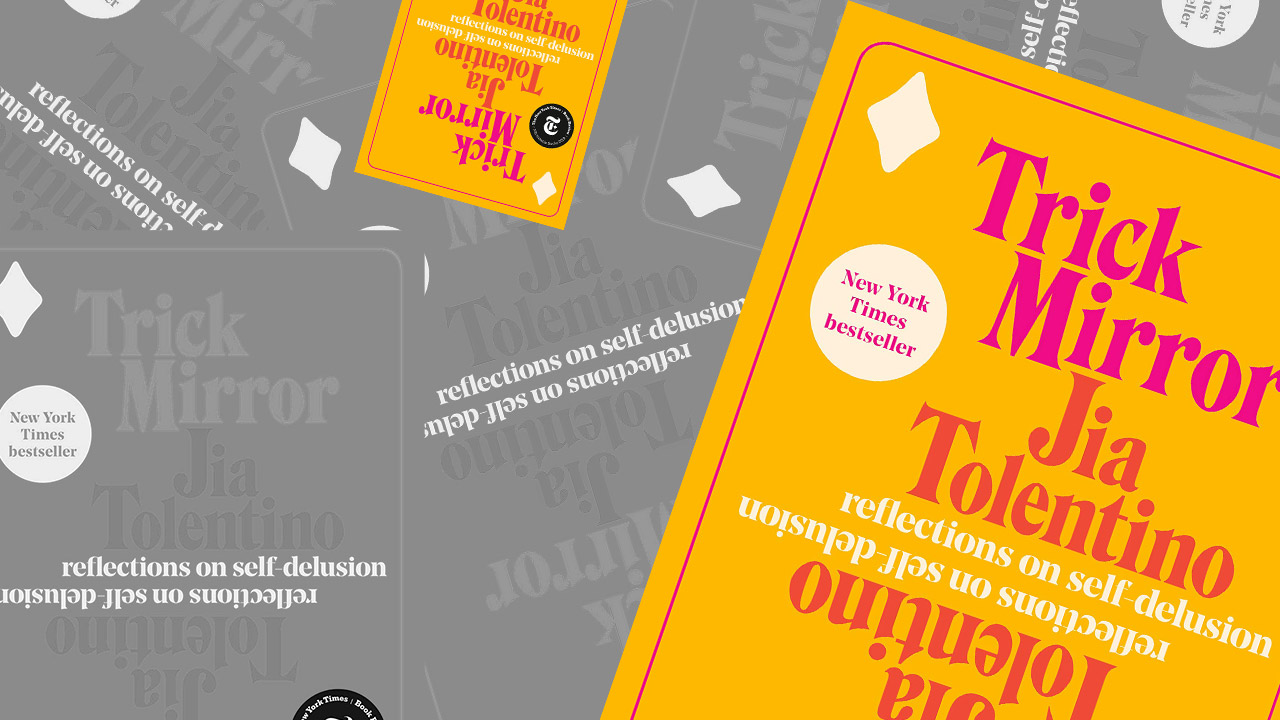Just like other girls
The faux-vulnerability of “Trick Mirror”

We awoke to a brave new world: one in which it is marginally more OK to criticize Jia Tolentino.
In January, Lauren Oyler published a searing review of Trick Mirror in the London Review of Books. Oyler’s critique was essentially twofold: first, that Tolentino’s self-centered writing allows her to “make any observation about the world lead back to [her] own [life] and feelings, though it should be the other way round;” and second, that her “PR-style” persona preemptively undermines any genuinely risky ideas she might otherwise seem inclined to explore.
This could have been significant for Tolentino, resident darling of the literary world, who had yet to receive any major bad press on her first book of essays. But Oyler’s criticisms were unfortunately obscured by her own hair-splitty, exasperated prose; even on Twitter, the piece blew over quickly.
I wondered, though, if Oyler might be onto something (at least more than the net-unanimous critical praise of Trick Mirror would lead us to believe). What if we allowed ourselves to ask, even privately: In what ways did this book alienate me from—rather than connect me to—my experience of navigating the world?
As is the case for many young women writers, Jia Tolentino exists in my life as the de facto aspirational model. If her professional success wasn’t enough, her public persona is, well, perfect: she brings weed on her New Yorker reporting trips, forgets her own anniversary, and is the exact right amount #dead and grateful to have made it on Obama’s best-of-2019 list. More than her intellectual horsepower or reporting chops, it’s this realness—or, rather, this expertly crafted “relatable” character—that has cemented her as our It girl. To a certain extent, we read her because we want to be like her.
Therefore, the hope was that Trick Mirror might provide rawer insight into the way Jia understands her choices and in turn, offer us some useful self-reflection. But although she presents as ambitious, whip-smart, fun-loving, and cool, by the end of the book, I didn’t really see her in it—in fact, I found her completely invulnerable.
While Trick Mirror explicitly concerns self-image and self-obscuration, we never really get a resonant portrayal of how it all works on the ground. In “Always Be Optimizing,” Jia does veer into self-exposure: Of her obsession with barre class, she wonders, “Why have I sunk thousands of dollars over the past decade into ensuring that I can abuse my body… without changing the way it looks?” She admits to buying Spanx and feeling like “a bad imitation of a woman whose most deeply held personal goal was to look hot in pictures.” But these ruminations fall flat: they feel more like a performance of stock insecurities than an airing of genuine vulnerability.
What Jia does share about her personal life generally serves to elevate her above the rest of us, rather than elucidate common anxieties. Take the book’s final chapter, “I Thee Dread,” in which she attempts to thoughtfully critique the modern institution of marriage by performing a balls-to-the-wall takedown of weddings. I’ll summarize:
Weddings! They’re so expensive, they’re so garish, the pageantry of it all is so brutally depressing. Any logical feminist would—and should—see through the whole hoax. It’s a commercialized, overly theatrical scheme for people to get drunk and make false promises. How do all these smart women fall for such a trap of capitalism and patriarchy? Jia seems genuinely stumped.
Okay, yeah, rich people are annoying. That chick’s veil was gauche. But are ostentatious weddings really the core problem with marriage? Besides, what about how it feels, how it really feels, to age as a woman and reconsider what “security” means? What about the negotiations between the seemingly incompatible desires for intimacy and autonomy? What about the centuries of accumulated historical experience that warn against being a single woman? Rather than wrestling with these knottier questions, Jia brushes off the whole matter with a simple explanation that she—unlike the swarms of ostensibly unthinking, normal women whose weddings she attends—just has a “sense of incompatibility with the word ‘wife’” (except in the internet-y context, of course).
So we can see how Oyler concluded that Jia’s writing feels “designed to set her apart from”—rather than relate her to—other women. But the problem isn’t only that Jia is too self-absorbed, it’s that she’s not self-interrogating enough. Ultimately, she doesn’t get us to feel anything, because she’s merely signaling “vulnerability” without actually letting her guard down.
For what it’s worth, here’s what I want: I want to see Jia decide to go blonde. I want to see her mourn a breakup. I want to see her draft the perfect caption, equal parts ironic and sincere. I want to see her navigate a female friendship fraught with jealousy and competition. I want to see her awake at midnight, stalking beautiful women on Instagram, zooming in and cocking her head to check for evidence of FaceTune.
And here’s the thing: writing through these pedestrian experiences would not require her to abandon her intellectual project or relegate Trick Mirror to mere memoir. In fact, they might prove more useful vehicles through which to examine the social, political, and technological systems that have produced our current collective malaise. If nothing else, we’d trust her more—as a guide, as a friend—if she showed up just as vain, just as fearful, just as maniacally self-conscious as the rest of us. ▩